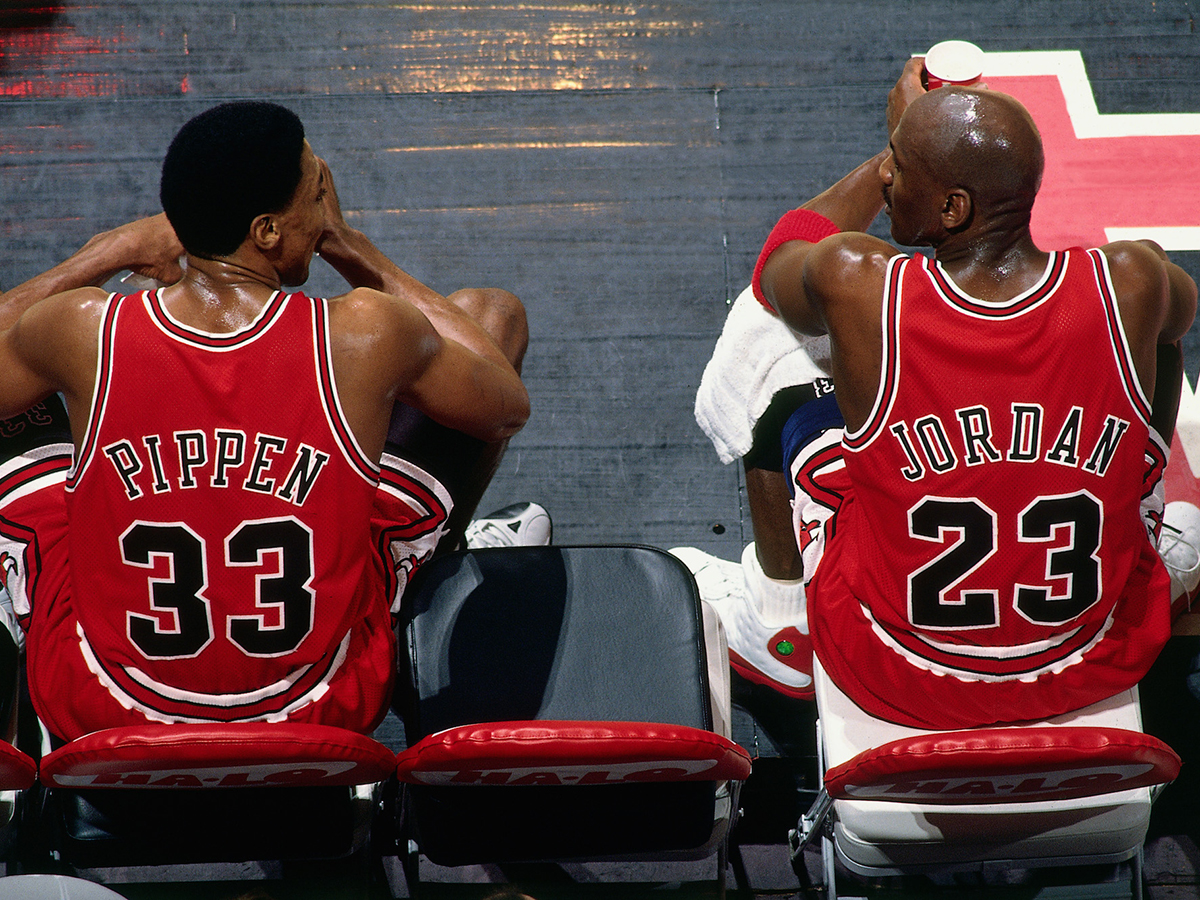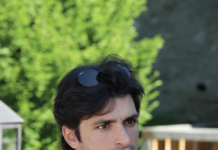
The previous episodes of “The Last Dance” dedicated much of the runtime to establishing the key figures involved in the story of Michael Jordan’s career. Episode five and six, however, shift their focus to the incidents off of the court that influenced the performance of the team.
Episode five is especially heart churning as the opening words, “In loving memory of Kobe Bryant,” appear on screen. The scene transitions to the 1998 All-Star Game from Madison Square Garden as Michael Jordan walks the hallways next to Steve Smith as a young Kobe Bryant glides by.
Rather than add fuel to the “Jordan or Kobe” eternal debate, the show expands on their wholesome big-little brother relationship. Both players speak on their reluctance to make an argument for one being the better player. In a touching moment, Jordan says everyone wanted to talk about comparisons when he just “wanted to talk about Kobe.”
After Bryant initially reached out to Jordan about advice on his shot, Jordan provided Bryant with his phone number. Jordan describes Bryant calling or texting randomly late into the night to talk basketball. While he initially expressed that their relationship was aggravating, Jordan later said that it was the start of a “nuisance that turned into love over a period of time.”
Enter the inception and development of the Air Jordan brand. Even outside of the sports arena, the brand Air Jordan and his partnership with Nike has permeated the spheres of entertainment — Air Jordan was everywhere, from rap music to the design of Miles Morales’ incarnation of Spider-Man. The magnitude of Jordan’s brand and global popularity soared to heights of a cultural icon far beyond the basketball court.
Early in his career, Jordan and his agent were looking for endorsements to establish his identity outside of the arena. Although Jordan has previously admitted his preference for a partnership with Nike’s long-time rival, Adidas, partnering with the fledgling company bonded the images of Jordan and Nike.
The second half of episode five details Jordan’s role in the 1992 Barcelona Olympics. Dubbed the “Dream Team” on a 1991 Sports Illustrated cover, Jordan, Magic Johnson, Karl Malone, Charles Barkley and Patrick Ewing made up the Olympic team. The takeaway from this segment is Jordan’s ruthless image portrayed in the media.
To the surprise of many, Detroit Pistons legend Isiah Thomas was left out of the squad that traveled to Barcelona in 1992. The implication is that a personal feud between Jordan and Thomas was the reason for his omission, but Jordan cites Thomas’ trouble in working with a team, and the NBA as a whole, as the larger reason. The show and its personalities do not offer a concise reason for why Thomas was left off the roster, instead tiptoeing around the topic for the most part.
Episode six hones in on the speculation surrounding Jordan’s alleged gambling habits and its implications on his image while balancing his journey to the first three-peat in the Bulls’ history. The episode outlines Jordan gambling in Atlantic City on the eve of a loss to the New York Knicks in Game 2 of the ’92-’93 Eastern Conference Finals.
Larger monetary losses, such as an alleged seven-figure debt across golf games claimed by a man named Richard Esquinas, take the center stage. Another instance went as far as seeing Jordan receiving a subpoena to testify against a convicted cocaine dealer by the name of James ‘Slim’ Bouler. The trial involved money-laundering and drug charges and a $57,000 cashier’s check transaction between Jordan and Bouler.
The show frames this in another light around the halfway mark. It begins with footage of Jordan playing a friendly game of dice with Bulls’ employees for low stakes. Jordan loses and is visibly upset, but the show alludes to it being more about the concept of losing rather than the money.
In an interview, Jordan is asked if he believes he has a gambling problem. Stoically as ever, Jordan replies “No, I have a competition problem.” The show attaches culpability to the media in order to make headlines and some quick cash. The media exacerbated an arguable flaw and it subsequently affected Jordan’s brand and image.
The episode eventually leaves viewers with quite an introspective dilemma conveyed through Jordan himself.






